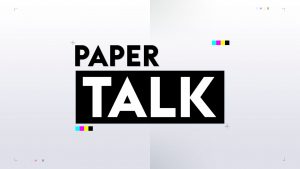Four Hong Kong lawmakers unseated as Beijing moves to silence opposition

The resolution, passed by China’s highest legislative body, allows Hong Kong’s executive to expel elected lawmakers directly without having to go through the courts, cementing Beijing’s control over the semi-autonomous territory. Under the new ruling, lawmakers who are deemed to promote or support Hong Kong independence, or who refuse to acknowledge Beijing’s sovereignty over the city will “immediately lose their qualifications,” the resolution said. It also applies to elected lawmakers who “seek foreign forces to intervene in the affairs of Hong Kong, or who have endangered national security” and who “fail to uphold the Basic Law” — the city’s mini constitution — as well as those who are deemed “not loyal to the legal requirements and conditions” of the territory.The four legislators, Alvin Yeung, Dennis Kwok, Kwok Ka-ki and Kenneth Leung, were immediately disqualified from the city’s Legislative Council following the ruling, the Hong Kong government said. The four were previously barred from running in now postponed legislative elections earlier this year. The ruling means that Beijing has effectively closed off one of the few remaining avenues open to Hong Kong residents to voice political dissent, following the imposition of a sweeping national security law in June criminalizing subversion.The government clampdown comes in response to months of pro-democracy protests, which at their height attracted more than 1 million people, and plunged the city into political crisis. Some Hong Kong activists including former lawmakers and protest leaders have sought political asylum in other countries, fearing for their safety under the new measures. Kwok Ka-ki, one of those disqualified, told Hong Kong public broadcaster RTHK that it was a day to “remember and reflect on the fight for democracy.””Today, One Country, Two Systems no longer exists. Anyone who made this decision has to answer to history and every one of the Hong Kong people,” he said, referring to the legal framework that had provided Hong Kong with greater autonomy from the mainland.In a show of solidarity in advance of the ruling on Monday, 19 pro-democracy lawmakers threatened to resign en masse if any of their members were disqualified. Pro-democracy lawmaker Claudia Mo, said she and the 15 remaining pro-democracy lawmakers will step down later today.”They have practically put the nail into Hong Kong’s democracy fight. From now on, anyone deemed to be politically incorrect will not be allowed to run in the election,” she said. “They are making sure only patriots can join Hong Kong’s political election.”China’s National People’s Congress Standing Committee (NPCSC) passed the resolution following a meeting in Beijing on Monday. The move is a latest in a months long clampdown on opposition and pro-democracy voices in the city, following last year’s anti-government protest movement. Hong Kong’s leader, Chief Executive Carrie Lam, said in a press conference Wednesday that those who do not respect China’s sovereignty “cannot genuinely perform their duties as legislators.””I welcome diverse opinion in the Legislative Council and respect the checks and balances,” Lam said, adding that, “all of those responsibilities must be exercised responsibly.”Hong Kong is part of China, but the semi-autonomous city has its own legal and political system, with limited democracy and greater personal freedoms than on the mainland. Opposition lawmakers — the democratic camp — hold a minority in the 70-member Legislative Council and often resort to filibustering and other procedural tactics to slow down legislation they see as diminishing those social freedoms. RTHK previously reported that Beijing was seeking to unseat the now disqualified lawmakers for violating Hong Kong’s Basic Law by filibustering meetings. Emily Lau, former chair for the Democratic Party, said that she believed the Hong Kong government and the ruling Communist Party in Beijing had become fed up with the filibustering by pro-democracy lawmakers in the city’s Legislative Council chamber.”It is absolutely devastating,” said Lau, a former Legislative Council member, of the new resolution. “We have procedures in the Basic Law if you want to kick out a legislator but they have just ignored all that … there’s no rule of law. It’s sending a very bad signal to Hong Kong and the world.”Lau said that the broad definition of new ruling means it could be applied to “almost half of the population” and that the only people who could now run for government would be those who would “kowtow to Beijing.”In July, 12 pro-democracy candidates — including the now-excluded four — were disqualified from standing in now-postponed legislative elections on the grounds that they would not uphold the city’s mini-constitution. They included prominent Hong Kong activist and former leader of the 2014 Umbrella Movement Joshua Wong, and a number of candidates from more traditional pro-democracy parties, as well as several young activists who cut their political teeth in last year’s pro-democracy protest movement.The legislative election, which had been scheduled for September 6, was postponed in July for 12 months due to coronavirus concerns. But some pro-democracy activists claimed the government was using the pandemic as an excuse to indefinitely postpone a crucial election for Hong Kong. Just under half the seats in the Legislative Council are controlled by so-called functional constituencies, which represent business and society groups and are typically pro-government. The rest go to candidates in geographical constituencies, and before the election postponement, opposition parties had aimed to ride a wave of discontent with the government to fill those seats. Critics now fear that with Beijing’s ruling and the expulsion of democracy lawmakers, Hong Kong’s parliament may just become a rubber stamp body for pro-Beijing policies. With reporting from Eric Cheung, Kristie Lu Stout, and James Griffiths in Hong Kong.







